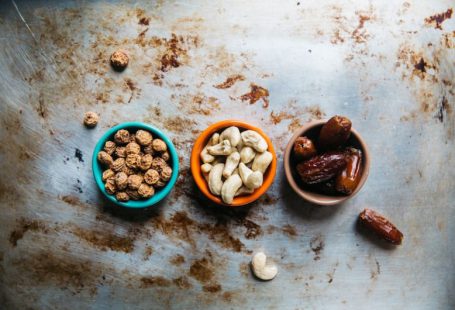The gut is often referred to as the body’s second brain, playing a crucial role in our overall health and well-being. Probiotics and prebiotics have gained increasing attention in recent years for their powerful impact on gut health. These two components work synergistically to promote a healthy gut microbiome, which is essential for digestion, immunity, and even mental health. Let’s delve into the world of probiotics and prebiotics and uncover how they can be powerhouses for gut health.
**Understanding Probiotics: The Good Bacteria**
Probiotics are live bacteria and yeasts that are beneficial for our health, especially our digestive system. These “good” bacteria help maintain a balanced gut microbiome by inhibiting the growth of harmful bacteria, aiding in digestion, and supporting immune function. Probiotics can be found in various food sources, such as yogurt, kefir, kimchi, sauerkraut, and kombucha, as well as in supplement form.
Certain strains of probiotics, such as Lactobacillus and Bifidobacterium, have been extensively studied for their health benefits. These probiotic strains can help alleviate symptoms of digestive disorders like irritable bowel syndrome (IBS), reduce inflammation in the gut, and even enhance mental health by influencing the gut-brain axis.
**Harnessing the Power of Prebiotics**
Prebiotics are non-digestible fibers that serve as fuel for the beneficial bacteria in our gut. While probiotics introduce good bacteria into the gut, prebiotics act as food for these bacteria, helping them thrive and multiply. Prebiotics can be found in foods like chicory root, garlic, onions, bananas, and asparagus.
By nourishing the beneficial bacteria in our gut, prebiotics play a vital role in maintaining a healthy gut microbiome. They can help improve digestion, enhance nutrient absorption, and support the growth of good bacteria while inhibiting the growth of harmful bacteria. Including prebiotic-rich foods in your diet can promote gut health and overall well-being.
**The Gut-Brain Connection**
The gut-brain axis is a bidirectional communication system between the gut and the brain, linking emotional and cognitive centers of the brain with peripheral intestinal functions. Probiotics and prebiotics play a significant role in modulating this connection, influencing mood, cognition, and behavior.
Research suggests that a healthy gut microbiome, supported by probiotics and prebiotics, can positively impact mental health conditions like anxiety and depression. By promoting the production of neurotransmitters like serotonin and gamma-aminobutyric acid (GABA), gut-friendly bacteria contribute to emotional well-being and stress management.
**Optimizing Gut Health with Probiotics and Prebiotics**
Incorporating probiotics and prebiotics into your daily routine can be a game-changer for your gut health. Whether through fermented foods, supplements, or dietary sources rich in prebiotic fibers, you can support a diverse and thriving gut microbiome. By nurturing the balance of good bacteria in your gut, you can experience improved digestion, enhanced immunity, and better mental health.
**Embracing a Gut-Friendly Lifestyle**
In addition to incorporating probiotics and prebiotics into your diet, other lifestyle factors can also influence gut health. Getting regular exercise, managing stress, staying hydrated, and getting an adequate amount of sleep are all essential for a healthy gut microbiome. By prioritizing your gut health through a holistic approach, you can optimize your overall well-being.
**Unlocking the Potential of Probiotics and Prebiotics**
Probiotics and prebiotics are indeed powerhouses for gut health, offering a myriad of benefits for our overall well-being. By understanding the roles these components play in supporting a healthy gut microbiome and the gut-brain axis, we can harness their potential to enhance digestion, immunity, and mental health. With a focus on nurturing our gut health through proper nutrition and lifestyle choices, we can pave the way for a healthier and happier life.





